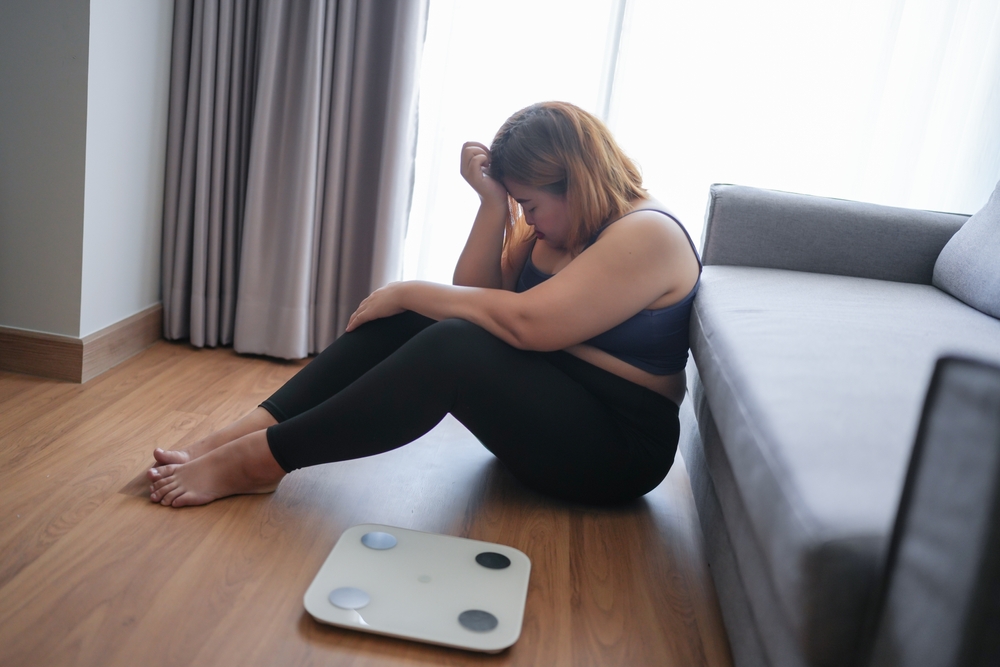Why Hormonal Imbalance Could Be Sabotaging Your Weight Loss Efforts
Weight loss can feel like an uphill battle, especially when you’re doing everything “right.” You’re following a healthy diet, exercising regularly, and getting enough sleep, but the scale refuses to budge. It’s frustrating and disheartening—leaving you questioning whether it’s all worth the effort. But what if the problem isn’t your willpower or your commitment? What if something deeper, something you can’t see or control, is sabotaging your progress?
If this sounds familiar, you’re not alone. For many people, the hidden culprit behind stubborn weight loss is hormonal imbalance. Hormones play a critical role in regulating metabolism, appetite, fat storage, and energy levels. When your hormones are out of sync, no amount of calorie counting or exercise can override the body’s biochemical imbalances.
In this article, we’ll explore how hormones affect weight loss, the signs that you may be dealing with a hormonal imbalance, and—most importantly—what you can do about it. By the end, you’ll have a clearer understanding of why weight loss might be more challenging than expected and how addressing your hormones could be the missing piece in your weight loss puzzle.
The Role of Hormones in Weight Loss
Before diving into the specifics of hormonal imbalances, it’s essential to understand the connection between hormones and weight regulation. Hormones are chemical messengers that influence almost every process in your body, including how you break down food, store fat, and manage hunger.
Several hormones are directly involved in weight loss:
- Insulin: This hormone helps regulate blood sugar levels. When insulin is functioning properly, your body uses glucose for energy. However, high insulin levels (often seen in people with insulin resistance or Type 2 diabetes) can lead to fat storage, particularly around the belly.
- Cortisol: Known as the “stress hormone,” cortisol plays a significant role in how your body responds to stress. Chronically high cortisol levels can lead to weight gain, particularly in the form of visceral fat, as the body stores fat as a protective measure against perceived threats.
- Leptin and Ghrelin: These are the hunger hormones. Leptin tells your brain when you’re full, while ghrelin triggers hunger. If these hormones are out of balance, it can lead to overeating or constant hunger, making it difficult to stick to a healthy eating plan.
- Thyroid Hormones: Your thyroid regulates metabolism. When thyroid hormones are too low (hypothyroidism), your metabolism slows down, making weight loss almost impossible despite your best efforts.
- Estrogen and Testosterone: These sex hormones also impact weight. For women, estrogen dominance (an imbalance where estrogen levels are too high relative to progesterone) can lead to fat storage, particularly in the hips and thighs. In men, low testosterone levels can contribute to weight gain and difficulty building muscle.
When any of these hormones are out of balance, it throws your entire system off, making weight loss much harder—if not impossible—without addressing the underlying hormonal issues.
Signs That Hormonal Imbalance Might Be Hindering Your Weight Loss
So, how can you tell if a hormonal imbalance is sabotaging your weight loss efforts? While a healthcare provider can help you determine whether your hormones are out of balance through testing, there are several signs to look for that could indicate a hormonal issue.
-
You’re Gaining Weight Despite Healthy Habits
If you’re following a healthy diet, exercising regularly, and still gaining weight, it could be a sign that your hormones are out of balance. This is especially true if the weight gain is concentrated around your midsection, which is often linked to high cortisol levels or insulin resistance.
-
You’re Constantly Hungry or Never Feel Full
An imbalance in the hunger hormones leptin and ghrelin can make it difficult to regulate your appetite. If you find yourself feeling hungry all the time or never feeling satisfied after meals, it may be a sign that these hormones aren’t functioning properly.
-
You’re Always Stressed or Anxious
Chronic stress can lead to elevated cortisol levels, which encourages the body to store fat, particularly around the abdomen. If you’re feeling constantly overwhelmed, anxious, or stressed, your cortisol levels may be interfering with your weight loss.
-
You’re Tired All the Time
Fatigue is a common symptom of hormonal imbalances, particularly when it comes to thyroid issues. If you’re feeling tired despite getting plenty of rest, it could be a sign that your thyroid hormones aren’t functioning properly.
-
You Have Difficulty Building Muscle
Testosterone plays a critical role in muscle growth for both men and women. If you’re finding it harder than usual to build or maintain muscle, low testosterone levels could be to blame. This is particularly common in men experiencing andropause or women going through menopause.
-
You’re Experiencing Mood Swings
Mood swings, irritability, or even depression can be related to hormonal imbalances, particularly in estrogen, progesterone, and testosterone. When these hormones are out of balance, it can affect your mood and make it harder to stick to healthy lifestyle changes.
If any of these symptoms sound familiar, it may be time to consider whether a hormonal imbalance is affecting your ability to lose weight. Fortunately, there are steps you can take to regain control of your hormones and your weight loss journey.
How to Address Hormonal Imbalance and Boost Weight Loss
The first step in addressing hormonal imbalance is to get a comprehensive evaluation from a healthcare provider who specializes in hormone health. They can assess your symptoms, run the necessary tests, and help you create a treatment plan tailored to your specific needs.
Here’s how you can start addressing hormonal imbalances to support your weight loss efforts:
-
Get Your Hormones Tested
A simple blood test can reveal whether your hormones are out of balance. Testing for thyroid function, insulin sensitivity, cortisol levels, and sex hormones like estrogen and testosterone can provide valuable insight into why you might be struggling to lose weight.
-
Consider Hormone Replacement Therapy (HRT)
For those experiencing significant hormonal imbalances, hormone replacement therapy (HRT) can be a game-changer. Bioidentical hormones, in particular, are often used to restore balance because they closely mimic the body’s natural hormones. HRT can help regulate hormone levels, reduce symptoms, and make weight loss more achievable.
For example, women experiencing estrogen dominance or men with low testosterone may benefit from hormone therapy to bring their levels back into balance, which can lead to improved metabolism, better muscle tone, and reduced fat storage.
-
Manage Stress
Because high cortisol levels can lead to weight gain, managing stress is crucial. Incorporating stress-relieving activities such as meditation, yoga, or deep breathing exercises can help lower cortisol levels, making it easier for your body to shed excess fat.
Additionally, adequate sleep is essential for regulating hormones like cortisol and ghrelin. Aim for 7-9 hours of quality sleep per night to support hormonal balance.
-
Adjust Your Diet for Hormonal Balance
Certain foods can help balance hormones and improve weight loss efforts. A diet rich in healthy fats, lean proteins, and plenty of fiber can support hormone health. Avoiding refined sugars and processed carbohydrates can also help regulate insulin and cortisol levels, promoting more stable energy levels and reducing fat storage.
Foods like avocados, fatty fish, nuts, and seeds are excellent choices for supporting hormone production and balance.
-
Exercise Smartly
Exercise is essential for weight loss, but over-exercising or doing the wrong types of exercise can actually increase cortisol levels and hinder your progress. Focus on a balanced exercise routine that includes strength training, which helps build muscle and improve testosterone levels, and moderate cardio to support overall health.
Consider incorporating activities that reduce stress, such as yoga or walking, rather than high-intensity workouts that could spike cortisol levels.
-
Prioritize Sleep
Sleep is often overlooked when it comes to weight loss, but it plays a critical role in regulating hormones. Poor sleep can lead to an imbalance in leptin and ghrelin, making you hungrier and more prone to overeating the next day. Prioritizing sleep quality can help balance these hormones, reduce cravings, and improve your overall energy levels.
Conclusion: Take Control of Your Weight Loss by Addressing Hormonal Imbalance
If you’ve been struggling with weight loss despite your best efforts, it may be time to consider whether hormonal imbalances are standing in your way. These invisible saboteurs can throw your entire system off balance, making it feel impossible to reach your goals no matter how much effort you put in.
The good news is that with the right approach, you can regain control of your hormones and finally break through the weight loss plateau. From hormone testing to personalized hormone replacement therapy, there are solutions available to help you restore balance and achieve your desired results.
At Aryze Well, we understand the frustration of dealing with stubborn weight that just won’t budge. Our team of experts specializes in hormone health and weight management, helping you identify the root causes of your weight loss struggles and creating a personalized plan to get you back on track. Contact Aryze Well today to schedule a consultation and take the first step toward a healthier, more balanced you. You deserve to feel your best—and we’re here to help you get there.
Dr. Indea May is a seasoned healthcare professional with over 20 years of experience in nursing and holistic medicine. As the Clinical Director of Aryze Well, PLLC, she combines her expertise in functional medicine, bioidentical hormone replacement therapy (BHRT), medical weight loss, gut health restoration, and IV hydration to provide integrative and personalized care. Read More: https://aryzewell.com/meet-dr-indea-may/
- Indea May



